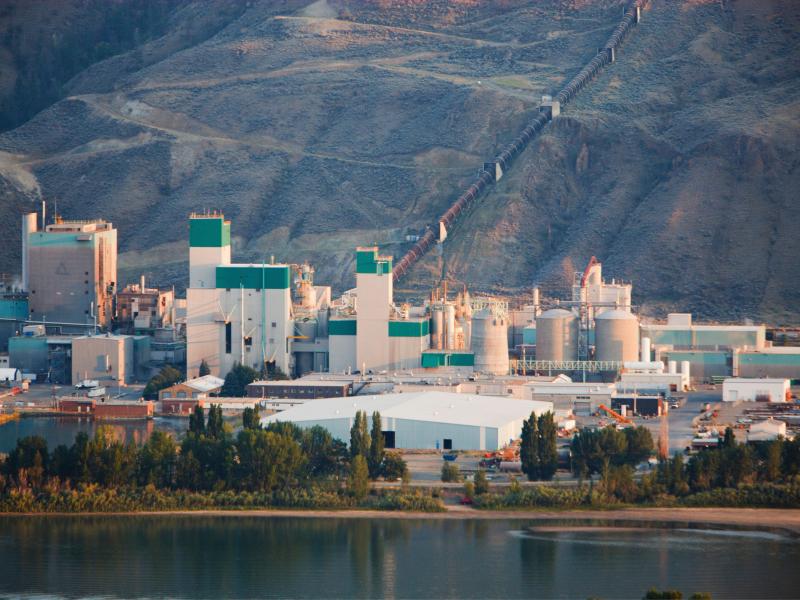Recent Articles
Magna International builds toward an EV future
Magna International builds toward an EV future
Magna International is going electric. Although we are still years away from an auto industry dominated by electric vehicles (EV), Magna is already restructuring its operations to take advantage of the rapid growth in EV sales.
The arrival of Britishvolt in Quebec will wait
Tipped to fill a void in the battery sector, Britishvolt has other fish to fry. The British company still wants to set up in Quebec, but the first sod is not for tomorrow.
Toyota to invest $6.9B in Japan, U.S. for EV batteries
Toyota Motor Corp. said it would invest up to 730 billion yen (around $6.9 billion) in Japan and the United States to make batteries for fully electric vehicles, a category of automobile that critics say it has been slow to embrace.
Toronto’s TransPod promises fast, low-carbon flights
• Treehugger • CNN
TransPod unveiled the FluxJet, which promises 45 minute flights from Calgary to Edmonton. According to the recent announcement in Toronto, this is entirely new technology promising affordability, speed and reduced carbon footprint.
Ivanhoé Cambridge sets net-zero target
Global real estate owner Ivanhoé Cambridge has set an ambitious carbon neutrality goal to reduce the carbon footprint of its real estate holdings by 35 per cent by 2025 and achieve a net-zero carbon balance by 2040.
Sask. prefab pilot offers green affordable housing model
Using prefabricated materials to build sustainable homes could catch on as a green building practice for affordable housing across Canada, thanks to a pilot project in Regina, Sask.
A green building technique, inspired by fish food
A group of University of Toronto researchers propose adapting an HVAC technique from Antarctic krill to develop a synthetic product for building facades. In their models, they say energy consumption was reduced by more than 30 per cent.
Lobster shells could be used to make renewable batteries
Scientists want to use a chemical found in crab and lobster shells to make batteries more sustainable, according to research from the University of Maryland’s Center for Materials Innovation.
Preparing commercial real estate for climate disasters
• Forbes
In recent years, we’ve seen a rise in natural disasters. Commercial real estate owners and landlords should have a plan to mitigate the effects of a natural disaster for the business or tenants.
How insurance can invest in climate sustainability
Climate-friendly impact investments and those promoting resilience to the damaging effects of climate change are environmentally responsible ways for insurers to allocate their capital, suggests one insurance expert.
A solution for overheating cities
No state or city is exempt from the global climate emergency. But certain cities and neighbourhoods are more at risk than others. Latin America faces particular peril. But Mexico City’s Isidro Fabela is a stand-out model of success.
Waste-to-energy strategy pitched for Alberta cities
Senior officials with Varme Energy, a Canadian developer in waste-to-energy and bioenergy projects, outlined a plan in Innisfail on August 25 for the Alberta city to support a multimillion-dollar waste-to-energy plant to divert its garbage from landfills.
Get ready for a global clean energy surge
The U.S. inflation bill’s $485 billion (US $369 billion) for clean energy is the largest investment in climate ever. It is likely to influence global prices too, and impact the energy transition in other countries in real, tangible ways.
California passes $70.9B climate, clean energy package
• CNN
California state lawmakers passed an aggressive climate legislation package, including $70.9 billion (US $54 billion) in new spending on clean energy and drought resilience measures, and a bill to stop the planned closure of the state’s last nuclear plant.
World’s biggest offshore wind farm is now operational
• CNBC
A facility described by Danish energy firm Orsted as the “world’s biggest offshore wind farm” is now fully operational, with its 165 turbines set to help power in excess of 1.4 million U.K. homes.
Pro-nuclear French say ‘Oui’ to renewables
• Euractiv
The French, long seen as fervent supporters of nuclear power, now appear to also favour renewable energies, according to a new survey which gives the government a welcome boost as it prepares a new law to accelerate energy infrastructure projects.
Carbon capture and storage projects largely fail: IEEFA
After a half-century of research and development, carbon capture and storage projects are far more likely to fail than to succeed, according to a sweeping industry assessment released by the Institute for Energy Economics and Financial Analysis (IEEFA).
A pyrrhic victory for Hydro-Québec in Maine?
An epic win for Hydro-Québec in the courts may prove hollow if northeastern states and provinces do not meaningfully address the extremely adversarial way that power transmission lines are developed in a shared region, affecting the environment and ratepayers.
Report raises concerns about Canadian deep sea miner
As a Canadian deep sea mining company pushes to consummate its 15-year “courtship” of the UN agency responsible for overseeing the equitable, ecologically safe extraction of seabed resources, an investigative report is raising flags about the deal and its impacts.
Atlantic premiers request time for carbon tax alternative
• CBC News
A day before the deadline for provinces to submit their plans to the federal government for how they will price carbon until 2030, Atlantic premiers are asking for more time.
 Industry Events
Industry Events
-
ECO IMPACT 2026
Feb 19 2026
to Feb 20 2026
The Westin Calgary
-
BuildGreen Atlantic
Apr 27 2026
to Apr 28 2026
Halifax, NS
-
The Evergreen Conference
May 06 2026
to May 07 2026
Toronto, ON
-
Building Lasting Change
Jun 17 2026
to Jun 19 2026
Montréal, QC
-
Retrofit Canada Conference
Jun 24 2026
to Jun 25 2026
Halifax Convention Center











